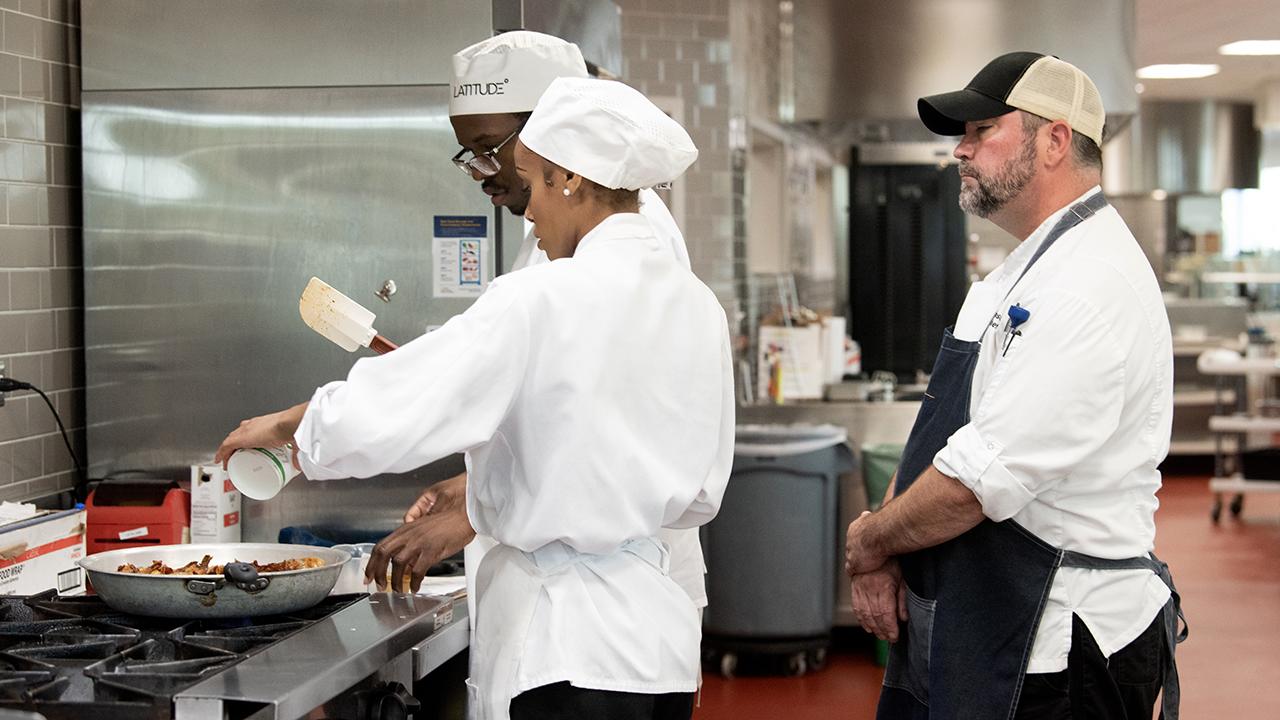Roger Thompson clapped his hands together. “You’ve got two hours to open. Let’s get to it.”
“Yes, Chef!” Andrea Rivera replied. She turned to a class visitor and whispered: “That’s so they know we heard them, and it’s fun too.”
And with that, Rivera and five other food service workers left their classroom space at dining tables in Latitude and headed toward the dining facility’s kitchen on their way to becoming cooks at UC Davis.
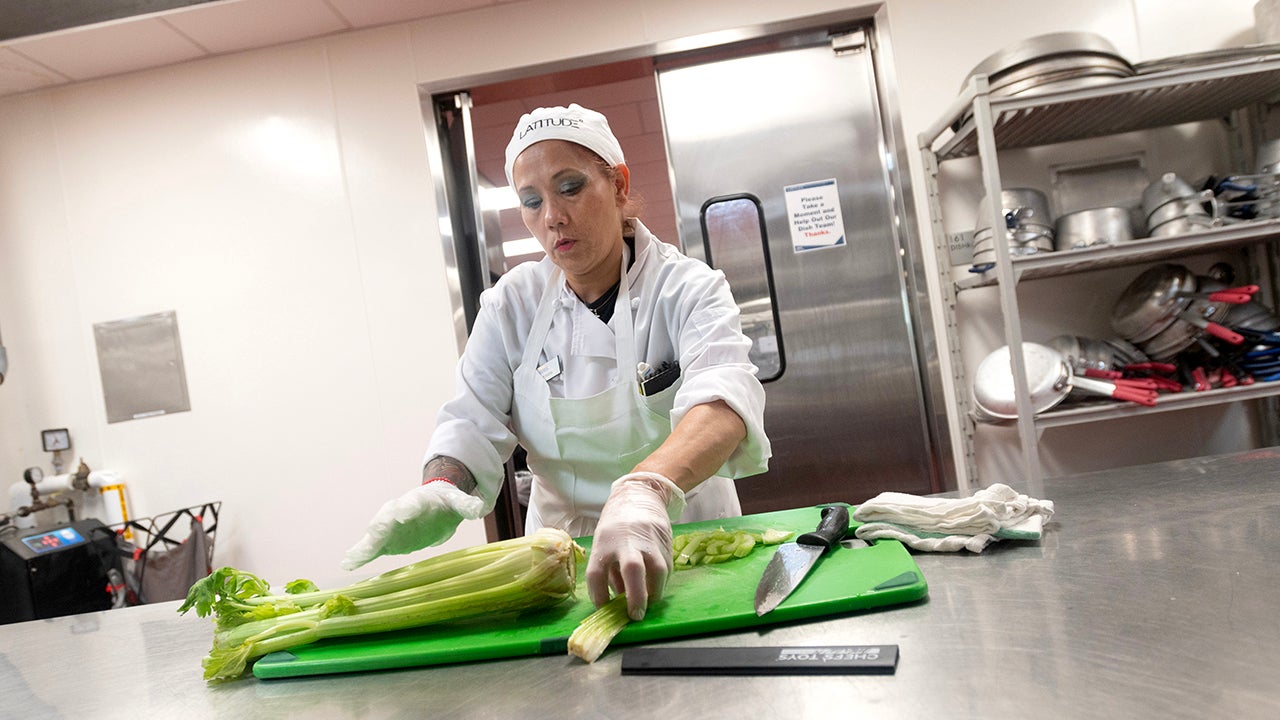
Finishing the sixth of nine weeks in Dining Services’ award-winning Culinary Training Program, three teams would each be fixing 20 portions of the recipe they’d just reviewed — Cajun-spiced shrimp served on creamy Fontina grits and garnished with bacon, chili oil and green onions — for a few dozen guests.
National recognition
Now in its third year, the program was created to help address the challenge that UC Davis — like other institutions and restaurants across the country — has had in finding cooks since the pandemic. It was recently awarded the Grand Prize for Employee Development Program of the Year by the National Association of College and University Food Services.
Dining Services is working to hire 18 food service workers and 15 cooks beyond the 102 food service workers and 130 cooks it already has for the start of the fall quarter. They will serve about 30,000 meals each day during the regular academic year.
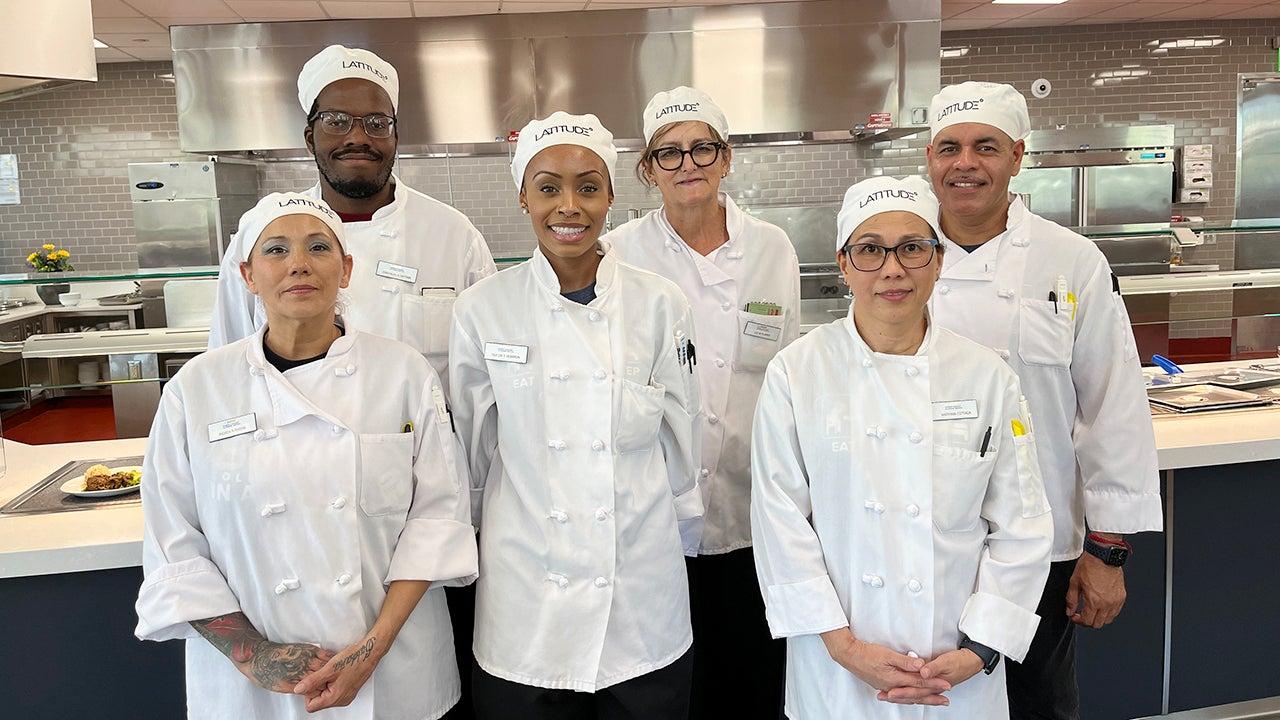
Developing our own cooks
Of the 27 students who completed the program in the past two summers, 14 became cooks. The current students were selected through interviews to gauge their interest in and aptitude for being a cook. Graduates will be promoted into a vacant cook position they chose at the start of the program and increase their hourly pay.
It made me realize I could do so much more." — Cook Su-Mei Huang, 2022 program participant
As food service workers at UC Davis for 18 months to six years, the current students have washed dishes, scrubbed pots and pans, maintained food stores, tended to beverage stations and salad bars, or helped clean the four dining facilities and Culinary Support Center.
“I heard good things about the class,” said Rivera, who has worked in the dish rooms at the Segundo Dining Commons and Latitude for almost six years. “I wanted to try something new.”
As a youth, Rivera helped plate food at her family’s Mexican restaurant in Woodland, but she said her palate hadn’t been exposed to many different cuisines.
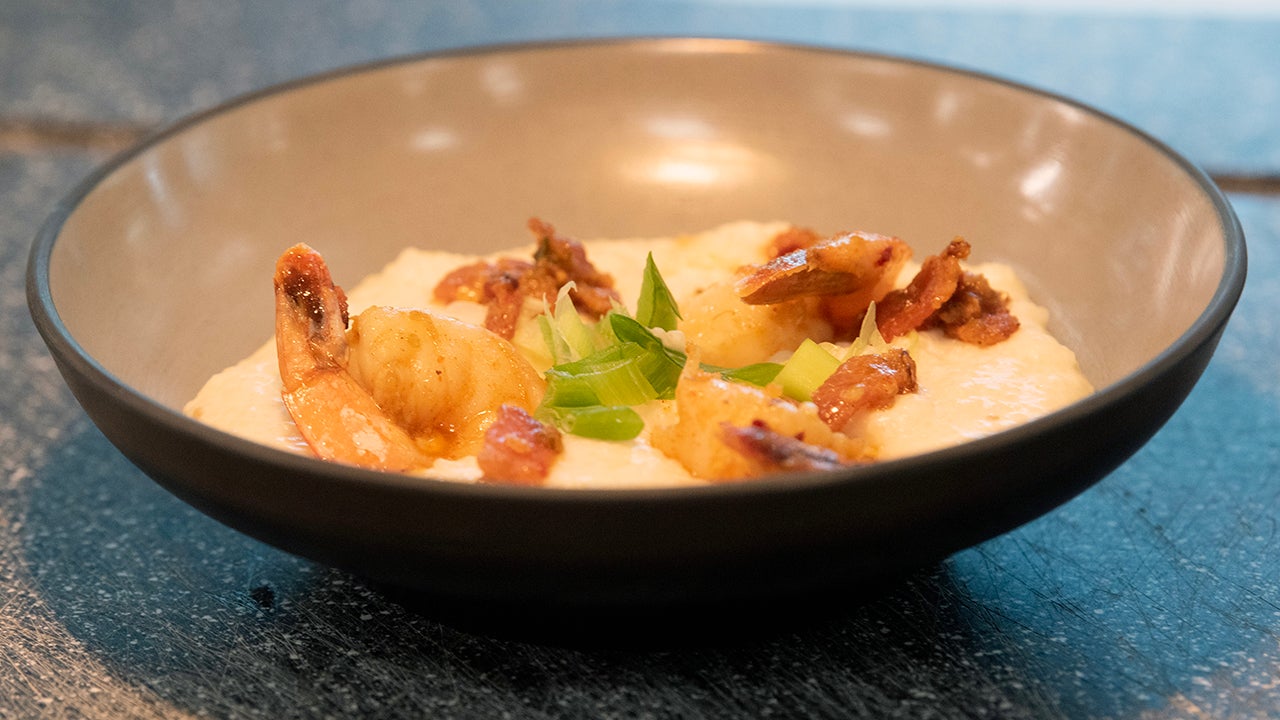
Learning global flavors
Now here she was cooking at the campus dining facility dedicated to global flavors. “I’m learning to open my taste buds,” she said, adding she enjoyed the Indian and Greek food she helped make in the last few weeks.
What I love is watching the sparks ignite, watching the passion for cooking build." — Roger Thompson, executive chef at Latitude
In the seventh week of the program, the students cooked 90 servings of paella, a Spanish dish of saffron rice, chorizo sausage, mussels, shrimp, chili peppers, roasted red bell peppers and green beans.
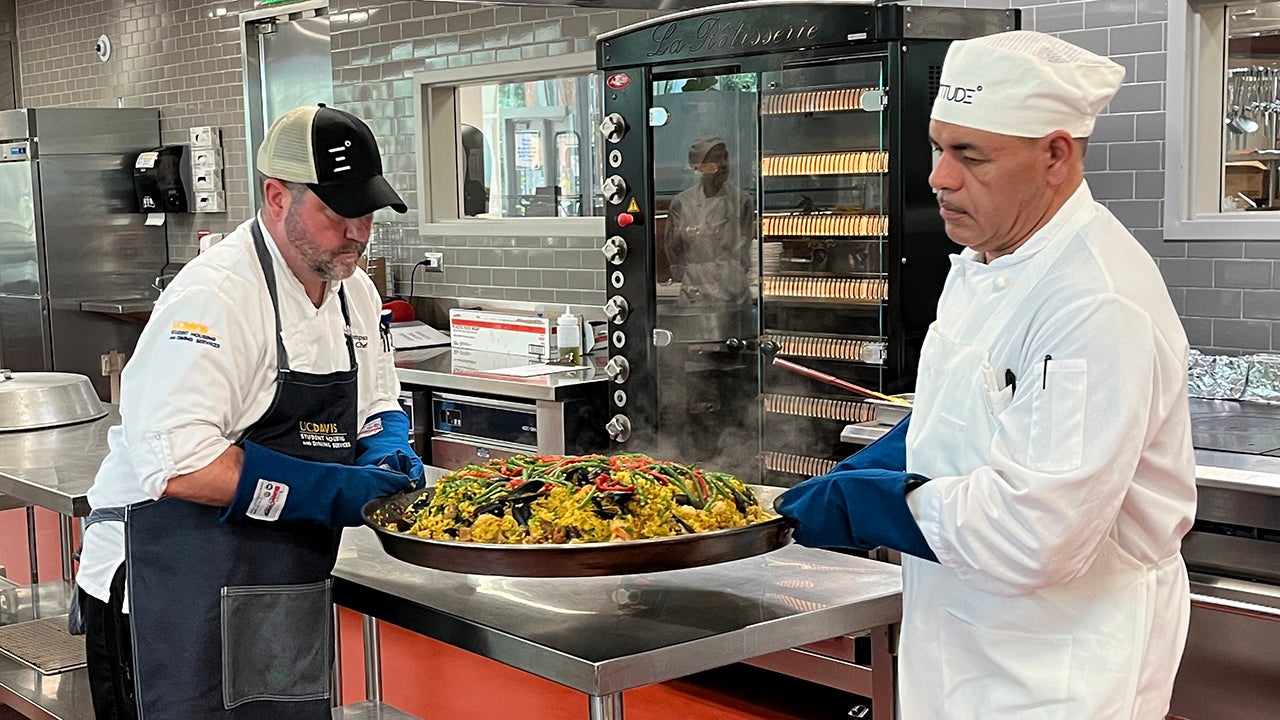
“What I love is watching the sparks ignite, watching the passion for cooking build,” said Thompson, executive chef at Latitude. “It reminds me and the sous chefs why we do this.”
Training for success here
Making use of Latitude while it is closed for the summer, the training is led by Thompson with two sous chefs, a safety manager and representatives from human resources.
“Part of my objective is training the students to be successful cooks here,” said Thompson, who developed the program. “We weren’t looking to teach them fundamentals of French cooking and the mother sauces,” he added.
Instead, the program focuses on kitchen and food safety; knife skills; cooking techniques; kitchen equipment on campus; working with proteins, meat alternatives and produce; campus recipes; and good customer service.
It's so good it makes you hungry. We leave with a full belly every day." — Taylor Hearron, program participant.
Taylor Hearron started working at UC Davis more than a year and a half ago and has tended the salad bar at Tercero and been in the pot room at Segundo. A home baker, she said she wanted to learn cooking techniques and move up in the kitchen. First afraid of burning herself, she is getting more comfortable being around the stove.
Hearron said getting to eat what she and the other students make is a real perk of the program. “It’s so good it makes you hungry,” she said. “We leave with a full belly every day.”
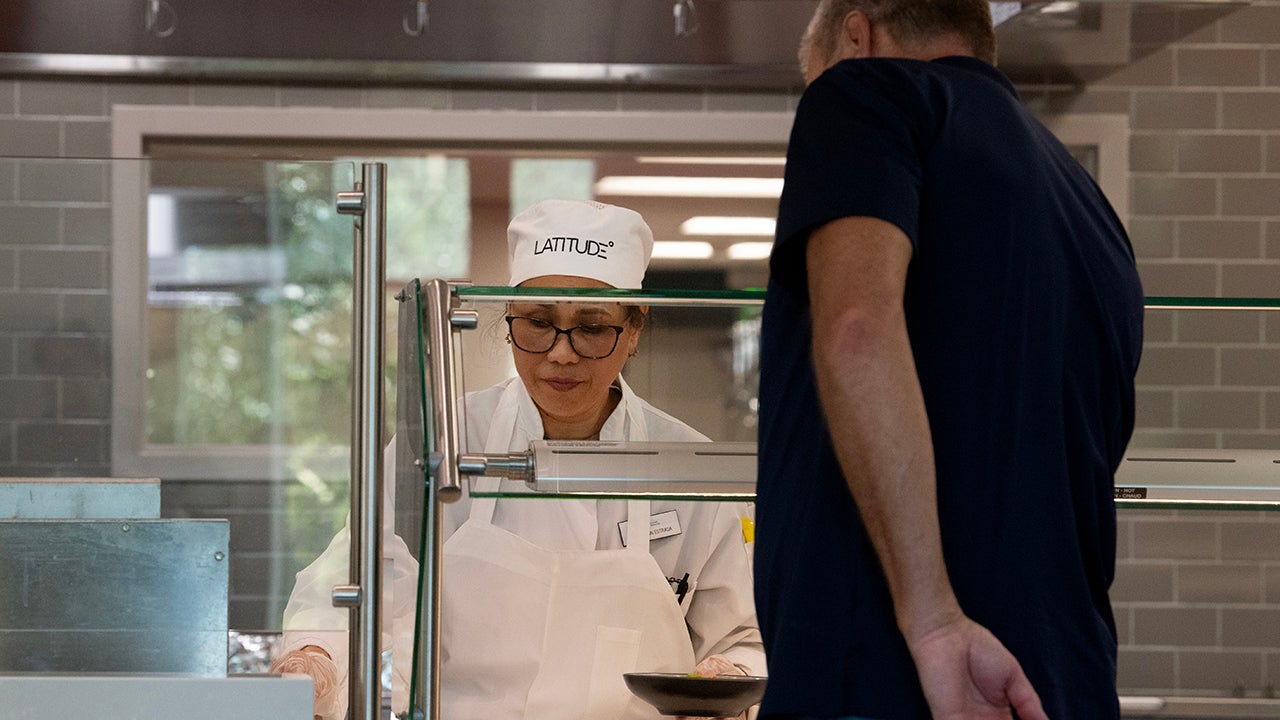
Cooking for guests
In the sixth and seventh weeks of the program, the students cook for invited guests including housing and dining staff and other campus employees. Guests are asked to sample the food prepared by each of the three pairs and then rate it for five things: food quality, presentation, timeliness, customer service, and the organization and cleanliness of their platform.
Just as Thompson reviews the recipes with the students before they head to the kitchen, the chef also shares feedback from the guests, who have included the executive chefs and sous chefs from other campus dining facilities.
Now the students are in their second week of working with cooks to serve lunch at Segundo, which is open for the summer. “They’re seeing what it’s really like feeding hundreds of people.” Thompson said.
Graduation
To graduate, participants must pass next week a written exam and prepare, to the satisfaction of professional chefs and others, 10 portions of an assigned dish including a protein, starch and vegetable.
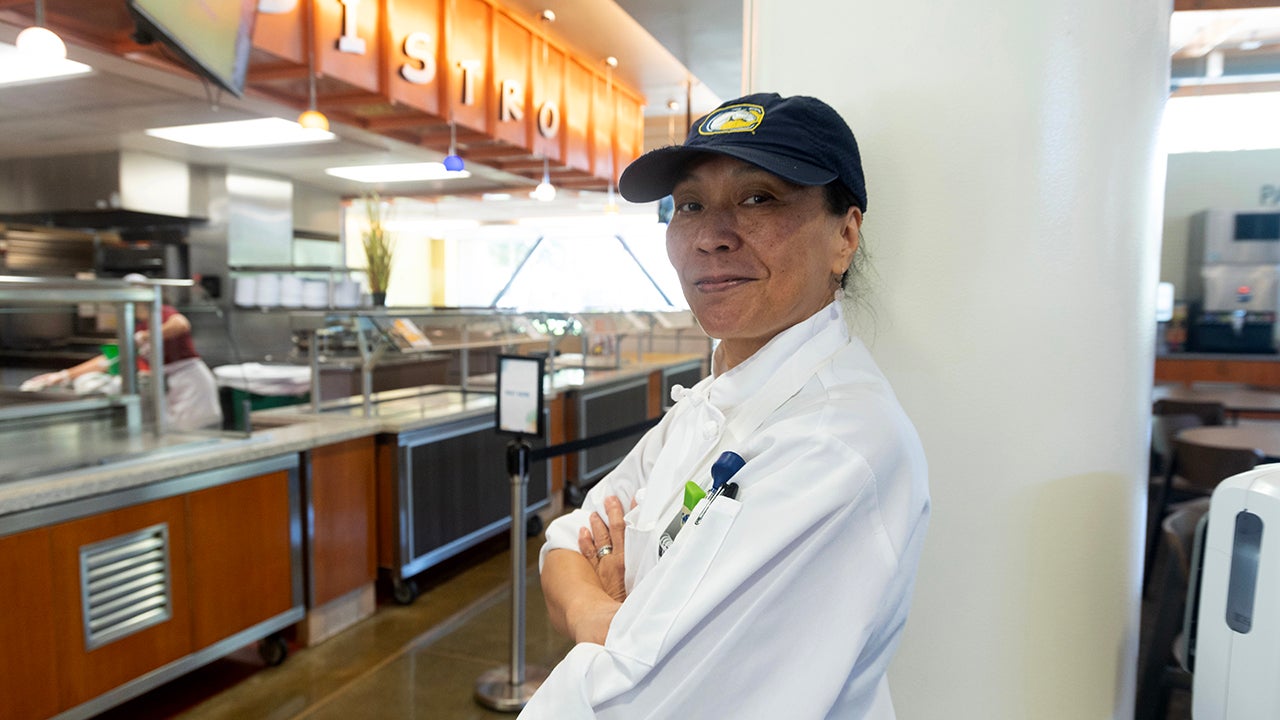
Su-Mei Huang, who started as a food service worker at UC Davis in 2017, is grateful that Gokhan Aksoy, the general manager at Latitude, encouraged her to participate in the training in 2022. She now is a cook at Latitude.
Huang grew up in a large family where a sister cooked and, Huang, she joked, “specialized in doing the dishes.”
Of the program she said, “It made me realize I was capable of doing more.”
Huang said the program also helped her appreciate that the mostly first-year students who use the dining commons are often away from home for the first time. “What we make is not just a meal,” she said. “It also provides some comfort.”
Media Resources
Media Contact:
- Julia Ann Easley, News and Media Relations, jaeasley@ucdavis.edu, 530-219-4545
